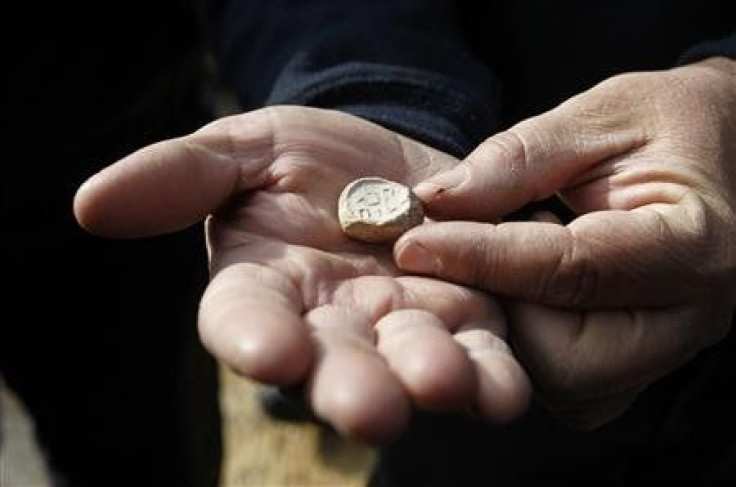Ancient 'Purity' Seal Found near Jerusalem Temple Site

(Reuters) - Israeli archaeologists said on Sunday they had found a 2,000-year-old clay seal near Jerusalem's Western Wall, confirming written accounts of ritual practices in the biblical Jewish Temple.
The button-shaped object bears the Aramaic words "pure for God," suggesting it was used to certify food and animals used in sacrificial ceremonies.
The Western Wall is part of the compound revered by Jews as the Temple Mount, where Islam's al-Aqsa mosque and Dome of the Rock shrine now stand in a holy complex Muslims call the Noble Sanctuary.
"It seems that the inscribed object was used to mark products or objects that were brought to the Temple, and it was imperative they be ritually pure," the Israel Antiquities Authority said in a statement announcing the find.
The authority said it believed it was the first time such a seal had been excavated, providing direct archaeological evidence of ritual activity in the temple described in ancient texts.
© Copyright Thomson Reuters 2024. All rights reserved.











